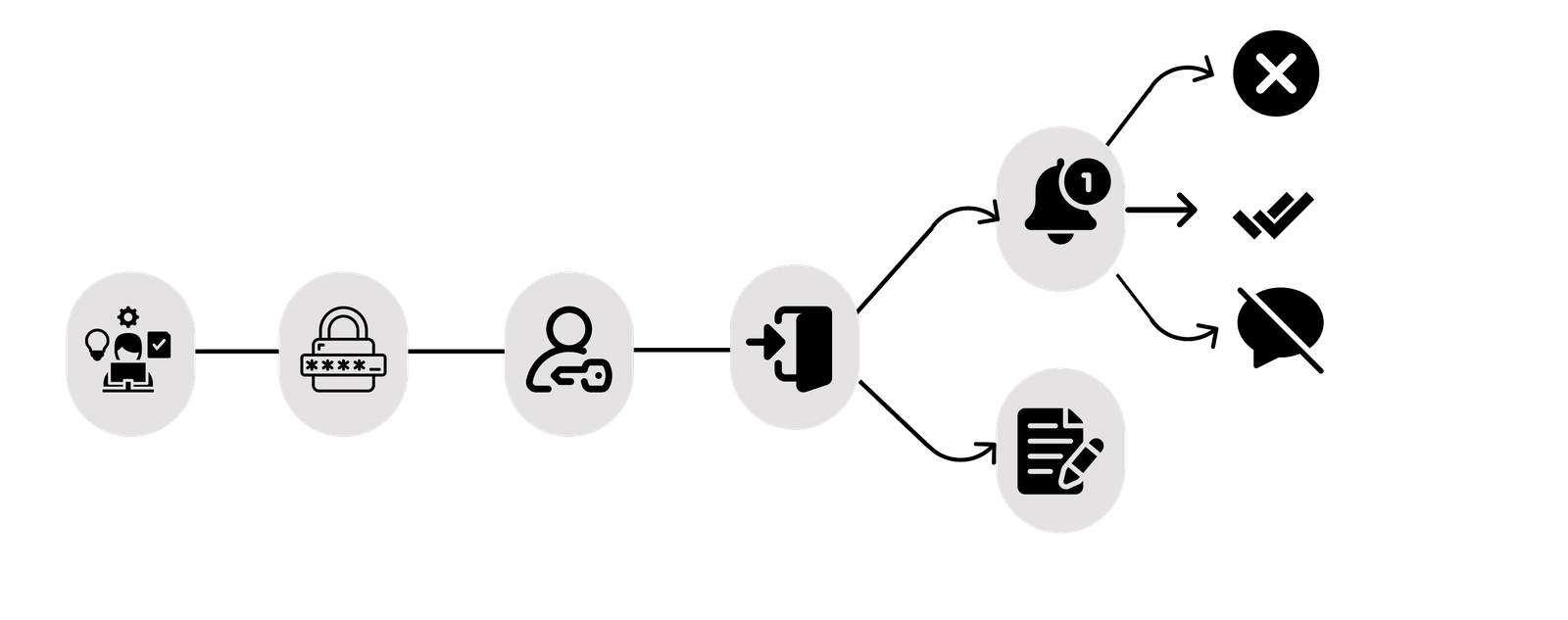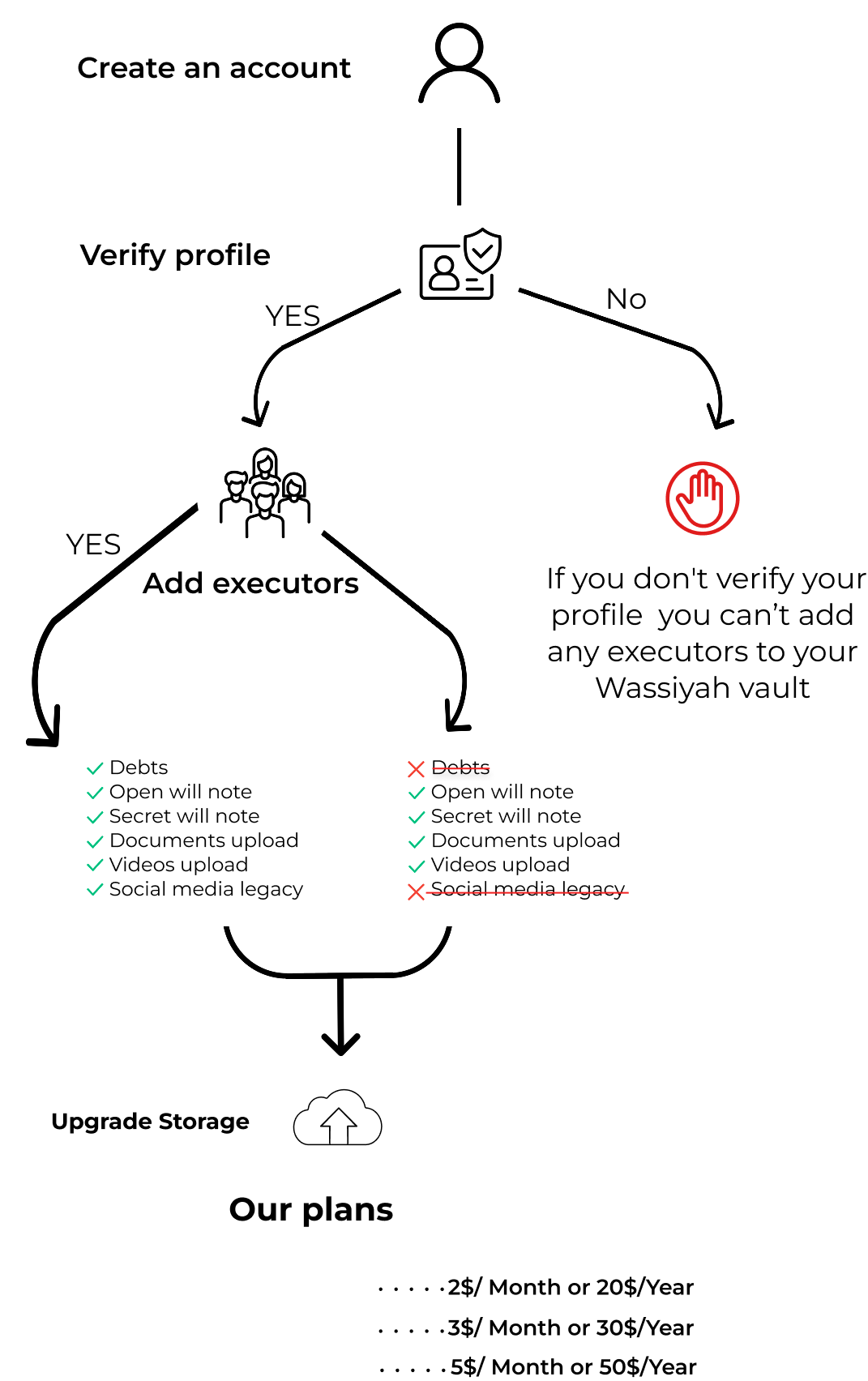En


En
العربیہ
Upgrade Storage
Verify my Identity (KYC)


Surat An-Nisaa 4:12
muslim and non-muslim world to remind people and give them the opportunity to decide their own legacy. Allah's messenger PBUH said: "A muslim who has something to bequest should not let two nights pass without writing a will about it." Sahih Bukhari
two primary innovations in the way Wassiyah is done today to respond to the current and future needs of our globalized, dynamic and fast moving societies where our estate are changing faster than ever before. The "Wassiyah Vault" concept, an all-in-one solution for creating a comprehensive Will including:
platform that enables people to do the most good for the causes close to their heart and at the same time keep their counter of good deeds ticking even after their passing.
Surat An-Nisaa 4:12







More than just a tool for convenience, Wassiyati-mywill is rooted in the desire to use technology to revive the Sunnah of writing and updating regularly our wassiyah. In an authentic hadith, the Prophet ﷺ said, “It is not befitting for a Muslim who has something to will, to stay for two nights without having his will written with him.”
Read moreMore than just a tool for convenience, Wassiyati-mywill is rooted in the desire to use technology to revive the Sunnah of writing and updating regularly our wassiyah. In an authentic hadith, the Prophet ﷺ said, “It is not befitting for a Muslim who has something to will, to stay for two nights without having his will written with him.”

This platform is a gentle reminder to think about our legacies, plan intentionally, facilitate goodness across the globe, reduce ambiguity and conflict for our loved ones after we return to Allah.
For years I’ve asked myself what I could contribute to the Ummah. Allah ﷻ has granted me a set of skills and experience, and I felt it was my duty to use them to serve Him...
Wassiyati is the fruit of purpose, persistence and passion. If you choose to use our platform, I want you to know this: your privacy and security are my top priority...
If you don’t choose to use our platform, I urge you: take steps to prepare your wassiyah...
I would like to dedicate this project to my parents who sacrificed everything for us, my beloved wife and children, my brothers and extended family...
Finally, I humbly ask you to make du‘aa for me—to be up to the responsibility this project carries, to be guided toward the right people and decisions...
رَبَّنَا تَقَبَّلْ مِنَّا ۖ إِنَّكَ أَنتَ السَّمِيعُ الْعَلِيمُ
و صل اللهم على سيدنا محمد و على آله و صحبه أجمعين
سبحانك اللهم و بحمدك، أشهد أن لا إله إلا أنت، أستغفرك وأتوب إليك
Omar Cedrati
Founder & CEO of Wassiyati-mywill
The seed of Wassivati-mywill was planted in 2014, inspired by a personal experience. Someone close to me entrusted me with the role of executor for their wassiyah (Islamic will). While I was honored by this responsibility, it also opened my eyes to the complexities of carrying out such a sacred trust, especially in today's fast-paced, ever-changing world.
Read moreThe seed of Wassivati-mywill was planted in 2014, inspired by a personal experience. Someone close to me entrusted me with the role of executor for their wassiyah (Islamic will). While I was honored by this responsibility, it also opened my eyes to the complexities of carrying out such a sacred trust, especially in today's fast-paced, ever-changing world.
Five years later that person is still alive and I was wondering, are the wassiyah requests of that person still the same after all this time ? Are the asset holdings of that person still the same? In our world of constantly shifting circumstances, our personal priorities and legacy intentions evolve, our assets holdings change on frequent basis. By the time someone's wishes are executed, so much may change. Their assets, debts, or even relationships. Should they return to a lawyer each time a small detail changes?
In reflecting on this, I saw a clear need for a platform that would allow people to update their wassiyah wishes and assets easily, giving a controlled access to executors while ensuring the safety and privacy of their data during their lifetime.
In 2019, I decided to take action and give it a shot. I was full-time employee at that time and could only focus on it outside working hours, weekend and holidays. Despite the blocks and challenges Allah swt kept pulling me back to the project.
First, I hired a freelance developer Mohammad (CWlrando) who was pivotal in the project bringing my ideas to life (special thanks to him for that). An excellent and serious developer but lacking that business mindset that would turn the platform into a viable lifetime project. While we made good progress, the early version remained too amateur for public use. With family duties, a demanding day job and limited time, the project was placed on hold.
Two years later, I didn't want to give up on the idea, still seeing the need and the potential. I decided to resume the effort with a more professional development company (Aptechmedia) using the previous development as a base.
I am still a full-time employee with limited time to bring this vision to life but step by step, brick by brick we managed to make it through and here we are today. What might have taken six months of full-time effort stretched into nearly six years! But hey, everything unfolds at the pace Allah wills.
Today, Wassiyati is ready to serve a wider audience, insha'Allah. And this is just the beginning, many ideas and features are yet to come, insha'Allah. Remember, the key is simply to start and I hope you will be part of our exciting journey. Start thinking about your legacy today and don't let others decide it for you tomorrow.
Wassiyati-mywill is more than a platform. It’s a call to prepare, reflect, and embrace responsibility in accordance with our faith. As Prophet Muhammad ﷺ said in an authentic hadith: “It is not befitting for a Muslim who has something to will, to stay for two nights without having his will written with him.”
Read moreWassiyati-mywill is more than a platform. It’s a call to prepare, reflect, and embrace responsibility in accordance with our faith. As Prophet Muhammad ﷺ said in an authentic hadith: “It is not befitting for a Muslim who has something to will, to stay for two nights without having his will written with him.”
Our vision is to leverage technology to allow Muslims and non-Muslims around the world to conveniently and regularly update their wassiyah wishes and assets, while giving controlled access to executors and ensuring the safety and privacy of their data during their lifetime.
Our aim is to facilitate long-lasting legacies, be a driver for goodness around the world, and avoid family conflicts that often happen after one’s passing.
This being said, if people choose not to use our service but Wassiyati inspires them to revive the Sunnah and prepare their will by any means, then we have also succeeded in our mission.
Please read carefully our Terms and conditions and Privacy policy before sign-up.
2. Legality: We do NOT provide a legal framework, rather an innovative
data storage platform that answers a specific need.
Wassiyati-mvwill provides users with a platform to store their wassiyah
(will) while introducing two primary innovations in the existing
methods of will storage. We do not offer any legal, financial, or estate planning
advice, nor do we provide a legally binding
framework. Please read our Terms & conditions
for more details.
To make your Wassiyati-mvwill legally binding, please take the necessary steps
within your jurisdiction.
3. Confidentiality: This platform gives you the opportunity to list all your
wishes and assets, provide clarity about your desired legacy so that your loved ones
would know what to do and follow your directions. As a storage platform, we take all
necessary steps to protect the confidentiality and security of your uploaded content.
Your wassiyah and related documents are encrypted and stored securely, and access
is restricted to you and any designated Executors. We pledge to never sell your data to
any third party and always keep the SECURITY and PRIVACY of your account
and data our top priority.
However, we do not take any responsibility if you lose your password or any of your
executor disclose their password. Our RECOMMANDATION to limit risks is to
not share inside the platform the passwords that will allow people to access your bank
accounts, social media accounts etc.
« Read ! » Quran 96:1
Source: Ahmed Al-Shugairi “The Forty”
All humans agree on the certainty of death, there is no debate about it. It is one of the inevitable aspects of life, and although we know with certainty that death is coming, we still try to avoid thinking about it or preparing for it. However, we are no better than the Prophet Muhammad (peace be upon him) who advised us to write our wills. (hadith)
In Islamic law, Wassiyah refers to a will or bequest made by a person before their passing. It can include:
A will is essential not only for those with wealth but for everyone, as it helps ease potential burdens on children and family. Through a will, one can clarify funeral arrangements, religious responsibilities, settle debts, manage legal matters, business directions etc.
The concept of wassiyah is derived from the Quran and Hadith. Allah instructs believers to make provisions for their families and others in a fair manner. The Quran emphasizes justice in wealth distribution (Surah Al-Baqarah, 2:180).
| What can be included in a Wassiyah | What can NOT be included in a Wassiyah |
|---|---|
| Limited to One-Third of the Estate: The remaining two-thirds are automatically distributed among the rightful heirs as per Islamic inheritance laws. | Not for legal Heirs: You cannot give a bequest to your children, spouse, or parents as they already have a designated share. |
| Charitable Bequests: Donations to mosques, schools, orphanages or humanitarian causes. Organ donations have differing opinions. | Exceeding One-Third: Bequeathing more than one-third is not allowed. |
| Benefiting Non-Heirs: Friends, distant relatives, or non-Muslims. | Harming Heirs: A wassiyah cannot be used to disinherit or reduce the share of heirs. |
| Instructions for handling debts or outstanding obligations. | Unlawful Purposes: Cannot be used for anything sinful or prohibited in Islam. |
| Funeral and burial instructions. | |
| Justice and Fairness: Must not harm the rights of heirs or violate Islamic law. | |
| Written and Witnessed: Clearly stated with two witnesses present. |
| Wassiyah (Will) | Mirath (Inheritance) |
|---|---|
| Applies to up to one-third of the estate. | Applies to the entire estate after wassiyah, debts and funeral expenses are paid. |
| Can benefit individuals not legally entitled to inherit, such as non-Muslims or charities. | Distributed only to legal heirs (e.g., parents, spouse, children) as per Quran. |
| Offers flexibility and personal choice for allocations. | Fixed and compulsory by Islamic law. |
| Declared during life, enforced after death. | Automatically takes effect upon death. |
| Translation | Reference | Arabic |
|---|---|---|
| It is prescribed that when death approaches any of you—if they leave something of value—a will should be made in favour of parents and immediate family with fairness. This is an obligation on those who are mindful of Allah. But whoever changes the will after hearing it, the blame will only be on those who made the change. Indeed, Allah is All-Hearing, All-Knowing. Whoever suspects an error or an injustice in the will and brings about a fair settlement among the parties will not be sinful. Surely Allah is All-Forgiving, Most Merciful. | Al-Baqara 2:180-182 | كُتِبَ عَلَيْكُمْ إِذَا حَضَرَ أَحَدَكُمُ ٱلْمَوْتُ إِن تَرَكَ خَيْرًا ٱلْوَصِيَّةُ لِلْوَٰلِدَيْنِ وَٱلْأَقْرَبِينَ بِٱلْمَعْرُوفِ ۖ حَقًّا عَلَى ٱلْمُتَّقِينَ١٨٠ فَمَنۢ بَدَّلَهُۥ بَعْدَ مَا سَمِعَهُۥ فَإِنَّمَآ إِثْمُهُۥ عَلَى ٱلَّذِينَ يُبَدِّلُونَهُۥٓ ۚ إِنَّ ٱللَّهَ سَمِيعٌ عَلِيمٌۭ ١٨١ فَمَنْ خَافَ مِن مُّوصٍۢ جَنَفًا أَوْ إِثْمًۭا فَأَصْلَحَ بَيْنَهُمْ فَلَآ إِثْمَ عَلَيْهِ ۚ إِنَّ ٱللَّهَ غَفُورٌۭ رَّحِيمٌۭ ١٨٢ |
|
Allah commands you regarding your children: the share of the male will be twice that of the female.1 If you leave only two ˹or more˺ females, their share is two-thirds of the estate. But if there is only one female, her share will be one-half. Each parent is entitled to one-sixth if you leave offspring.2 But if you are childless and your parents are the only heirs, then your mother will receive one-third.3 But if you leave siblings, then your mother will receive one-sixth4—after the fulfilment of bequests and debts.5 ˹Be fair to˺ your parents and children, as you do not ˹fully˺ know who is more beneficial to you.6 ˹This is˺ an obligation from Allah. Surely Allah is All-Knowing, All-Wise. You will inherit half of what your wives leave if they are childless. But if they have children, then ˹your share is˺ one-fourth of the estate—after the fulfilment of bequests and debts. And your wives will inherit one-fourth of what you leave if you are childless. But if you have children, then your wives will receive one-eighth of your estate—after the fulfilment of bequests and debts. And if a man or a woman leaves neither parents nor children but only a brother or a sister ˹from their mother’s side˺, they will each inherit one-sixth, but if they are more than one, they ˹all˺ will share one-third of the estate1—after the fulfilment of bequests and debts without harm ˹to the heirs˺.2 ˹This is˺ a commandment from Allah. And Allah is All-Knowing, Most Forbearing. |
An-Nisa 4:11-12 | يُوصِيكُمُ ٱللَّهُ فِىٓ أَوْلَـٰدِكُمْ ۖ لِلذَّكَرِ مِثْلُ حَظِّ ٱلْأُنثَيَيْنِ ۚ فَإِن كُنَّ نِسَآءًۭ فَوْقَ ٱثْنَتَيْنِ فَلَهُنَّ ثُلُثَا مَا تَرَكَ ۖ وَإِن كَانَتْ وَٰحِدَةًۭ فَلَهَا ٱلنِّصْفُ ۚ وَلِأَبَوَيْهِ لِكُلِّ وَٰحِدٍۢ مِّنْهُمَا ٱلسُّدُسُ مِمَّا تَرَكَ إِن كَانَ لَهُۥ وَلَدٌۭ ۚ فَإِن لَّمْ يَكُن لَّهُۥ وَلَدٌۭ وَوَرِثَهُۥٓ أَبَوَاهُ فَلِأُمِّهِ ٱلثُّلُثُ ۚ فَإِن كَانَ لَهُۥٓ إِخْوَةٌۭ فَلِأُمِّهِ ٱلسُّدُسُ ۚ مِنۢ بَعْدِ وَصِيَّةٍۢ يُوصِى بِهَآ أَوْ دَيْنٍ ۗ ءَابَآؤُكُمْ وَأَبْنَآؤُكُمْ لَا تَدْرُونَ أَيُّهُمْ أَقْرَبُ لَكُمْ نَفْعًۭا ۚ فَرِيضَةًۭ مِّنَ ٱللَّهِ ۗ إِنَّ ٱللَّهَ كَانَ عَلِيمًا حَكِيمًۭا ١١ وَلَكُمْ نِصْفُ مَا تَرَكَ أَزْوَٰجُكُمْ إِن لَّمْ يَكُن لَّهُنَّ وَلَدٌۭ ۚ فَإِن كَانَ لَهُنَّ وَلَدٌۭ فَلَكُمُ ٱلرُّبُعُ مِمَّا تَرَكْنَ ۚ مِنۢ بَعْدِ وَصِيَّةٍۢ يُوصِينَ بِهَآ أَوْ دَيْنٍۢ ۚ وَلَهُنَّ ٱلرُّبُعُ مِمَّا تَرَكْتُمْ إِن لَّمْ يَكُن لَّكُمْ وَلَدٌۭ ۚ فَإِن كَانَ لَكُمْ وَلَدٌۭ فَلَهُنَّ ٱلثُّمُنُ مِمَّا تَرَكْتُم ۚ مِّنۢ بَعْدِ وَصِيَّةٍۢ تُوصُونَ بِهَآ أَوْ دَيْنٍۢ ۗ وَإِن كَانَ رَجُلٌۭ يُورَثُ كَلَـٰلَةً أَوِ ٱمْرَأَةٌۭ وَلَهُۥٓ أَخٌ أَوْ أُخْتٌۭ فَلِكُلِّ وَٰحِدٍۢ مِّنْهُمَا ٱلسُّدُسُ ۚ فَإِن كَانُوٓا۟ أَكْثَرَ مِن ذَٰلِكَ فَهُمْ شُرَكَآءُ فِى ٱلثُّلُثِ ۚ مِنۢ بَعْدِ وَصِيَّةٍۢ يُوصَىٰ بِهَآ أَوْ دَيْنٍ غَيْرَ مُضَآرٍّۢ ۚ وَصِيَّةًۭ مِّنَ ٱللَّهِ ۗ وَٱللَّهُ عَلِيمٌ حَلِيمٌۭ ١٢ |
| O believers! When death approaches any of you, call upon two just Muslim men to witness as you make a bequest; otherwise, two non-Muslims if you are afflicted with death while on a journey.1 If you doubt ˹their testimony˺, keep them after prayer and let them testify under oath ˹saying˺, “By Allah! We would never sell our testimony for any price, even in favour of a close relative, nor withhold the testimony of Allah. Otherwise, we would surely be sinful. | Ya-Sin 36:49-50 | يَـٰٓأَيُّهَا ٱلَّذِينَ ءَامَنُوا۟ شَهَـٰدَةُ بَيْنِكُمْ إِذَا حَضَرَ أَحَدَكُمُ ٱلْمَوْتُ حِينَ ٱلْوَصِيَّةِ ٱثْنَانِ ذَوَا عَدْلٍۢ مِّنكُمْ أَوْ ءَاخَرَانِ مِنْ غَيْرِكُمْ إِنْ أَنتُمْ ضَرَبْتُمْ فِى ٱلْأَرْضِ فَأَصَـٰبَتْكُم مُّصِيبَةُ ٱلْمَوْتِ ۚ تَحْبِسُونَهُمَا مِنۢ بَعْدِ ٱلصَّلَوٰةِ فَيُقْسِمَانِ بِٱللَّهِ إِنِ ٱرْتَبْتُمْ لَا نَشْتَرِى بِهِۦ ثَمَنًۭا وَلَوْ كَانَ ذَا قُرْبَىٰ ۙ وَلَا نَكْتُمُ شَهَـٰدَةَ ٱللَّهِ إِنَّآ إِذًۭا لَّمِنَ ٱلْـَٔاثِمِينَ ١٠٦ |
| They must be awaiting a single Blast,1 which will seize them while they are ˹entrenched˺ in ˹worldly˺ disputes. Then they will not be able to make a ˹last˺ will, nor can they return to their own people | Ya-Sin 36:49-50 | مَا يَنظُرُونَ إِلَّا صَيْحَةًۭ وَٰحِدَةًۭ تَأْخُذُهُمْ وَهُمْ يَخِصِّمُونَ ٤٩ فَلَا يَسْتَطِيعُونَ تَوْصِيَةًۭ وَلَآ إِلَىٰٓ أَهْلِهِمْ يَرْجِعُونَ ٥٠ |
| Hadith | Reference | Arabic |
|---|---|---|
| Ibn 'Umar narrated that the Messenger of Allah (S.A.W) said: "It is not right for a Muslim man to spend two nights, having what he would will, without having his will written with him." | Jami` at-Tirmidhi 2118 | عَنْ نَافِعٍ، عَنِ ابْنِ عُمَرَ، قَالَ قَالَ النَّبِيُّ صلى الله عليه وسلم " مَا حَقُّ امْرِئٍ مُسْلِمٍ يَبِيتُ لَيْلَتَيْنِ وَلَهُ مَا يُوصِي فِيهِ إِلاَّ وَوَصِيَّتُهُ مَكْتُوبَةٌ عِنْدَهُ " |
| Narrated by Abu Hurayrah: I heard the Messenger of Allah ﷺ say: Allah has appointed for everyone who has a right what is due to him, and no bequest must be made to an heir. | Sunan Abi Dawood (2870) | حَدَّثَنَا عَبْدُ الْوَهَّابِ بْنُ نَجْدَةَ، حَدَّثَنَا ابْنُ عَيَّاشٍ، عَنْ شُرَحْبِيلَ بْنِ مُسْلِمٍ، سَمِعْتُ أَبَا أُمَامَةَ، سَمِعْتُ رَسُولَ اللَّهِ ﷺ يَقُولُ " إِنَّ اللَّهَ قَدْ أَعْطَى كُلَّ ذِي حَقٍّ حَقَّهُ فَلاَ وَصِيَّةَ لِوَارِثٍ " |
| Allah's messenger (ﷺ) visited Sa'd as he was ill in Mecca. He (Sa'd) wept. He (the Holy Prophet) said: What makes you weep? He said: I am afraid I may die in the land from where I migrated as Sa'd b. Khaula had died. Thereupon Allah's messenger (ﷺ) said: O Allah, grant health to Sa'd. O Allah, grant health to Sad. He repeated it three times. Sa'd said: Allah's Messenger, I own a large property and I have only one daughter as my inheritor. Should I not will away the whole of my property? He (ﷺ) said: No. He said: what about two-thirds of the property? he (ﷺ) said: No. Sa'd said: what about half ? He (ﷺ) said: No. Sa'd said: Then one-third? Thereupon the Prophet (ﷺ) said: Yes and one-third is a lot. And what you spend as charity from your property is Sadaqa and flour spending on your family is also Sadaqa, and what your wife eats from your property is also Sadaqa, and that you leave your heirs well off is better than to leave them (poor and) begging from people. The Prophet (ﷺ) pointed this with his hands. (*) | Sahih Muslim (1628) | النَّبِيَّ صلى الله عليه وسلم دَخَلَ عَلَى سَعْدٍ يَعُودُهُ بِمَكَّةَ فَبَكَى قَالَ " مَا يُبْكِيكَ " . فَقَالَ قَدْ خَشِيتُ أَنْ أَمُوتَ بِالأَرْضِ الَّتِي هَاجَرْتُ مِنْهَا كَمَا مَاتَ سَعْدُ ابْنُ خَوْلَةَ . فَقَالَ النَّبِيُّ صلى الله عليه وسلم " اللَّهُمَّ اشْفِ سَعْدًا اللَّهُمَّ اشْفِ سَعْدًا " . ثَلاَثَ مِرَارٍ . قَالَ يَا رَسُولَ اللَّهِ إِنَّ لِي مَالاً كَثِيرًا وَإِنَّمَا يَرِثُنِي ابْنَتِي أَفَأُوصِي بِمَالِي كُلِّهِ قَالَ " لاَ " . قَالَ فَبِالثُّلُثَيْنِ قَالَ " لاَ " . قَالَ فَالنِّصْفُ قَالَ " لاَ " . قَالَ فَالثُّلُثُ قَالَ " الثُّلُثُ وَالثُّلُثُ كَثِيرٌ إِنَّ صَدَقَتَكَ مِنْ مَالِكَ صَدَقَةٌ وَإِنَّ نَفَقَتَكَ عَلَى عِيَالِكَ صَدَقَةٌ وَإِنَّ مَا تَأْكُلُ امْرَأَتُكَ مِنْ مَالِكَ صَدَقَةٌ وَإِنَّكَ أَنْ تَدَعَ أَهْلَكَ بِخَيْرٍ - أَوْ قَالَ بِعَيْشٍ - خَيْرٌ مِنْ أَنْ تَدَعَهُمْ يَتَكَفَّفُونَ النَّاسَ " . وَقَالَ بِيَدِهِ . |
| Narrated Abu Huraira: A man asked the Prophet, "O Allah's Messenger (ﷺ)! What kind of charity is the best?" He replied. "To give in charity when you are healthy and greedy hoping to be wealthy and afraid of becoming poor. Don't delay giving in charity till the time when you are on the death bed when you say, 'Give so much to so-and- so and so much to so-and so,' and at that time the property is not yours but it belongs to so-and-so (i.e. your inheritors). | Sahih al-Bukhari (2748) | عَنْ أَبِي هُرَيْرَةَ ـ رضى الله عنه ـ قَالَ قَالَ رَجُلٌ لِلنَّبِيِّ صلى الله عليه وسلم يَا رَسُولَ اللَّهِ، أَىُّ الصَّدَقَةِ أَفْضَلُ قَالَ " أَنْ تَصَدَّقَ وَأَنْتَ صَحِيحٌ حَرِيصٌ. تَأْمُلُ الْغِنَى، وَتَخْشَى الْفَقْرَ، وَلاَ تُمْهِلْ حَتَّى إِذَا بَلَغَتِ الْحُلْقُومَ قُلْتَ لِفُلاَنٍ كَذَا وَلِفُلاَنٍ كَذَا، وَقَدْ كَانَ لِفُلاَنٍ ". |
| Abu Hurairah narrated that the Messenger of Allah ﷺ said: “A man may act according to the deeds of the people of good for seventy years, but if he is unjust in his will, the evil of his deed overtakes him, and he enters the Fire. And a man may act according to the deeds of the people of evil for seventy years, but he acts justly in his will, and the good of his deed overtakes him, and he enters Paradise.” | Sunan Abi Dawood (2866) | عَنْ أَبِي هُرَيْرَةَ، أَنَّ رَسُولَ اللَّهِ ﷺ قَالَ: “إِنَّ الرَّجُلَ لَيَعْمَلُ بِعَمَلِ أَهْلِ الْخَيْرِ سَبْعِينَ سَنَةً، فَإِذَا أَوْصَى حَافَ فِي وَصِيَّتِهِ، فَيُخْتَمُ لَهُ بِشَرِّ عَمَلِهِ، فَيَدْخُلُ النَّارَ. وَإِنَّ الرَّجُلَ لَيَعْمَلُ بِعَمَلِ أَهْلِ الشَّرِّ سَبْعِينَ سَنَةً، فَيَعْدِلُ فِي وَصِيَّتِهِ، فَيُخْتَمُ لَهُ بِخَيْرِ عَمَلِهِ، فَيَدْخُلُ الْجَنَّةَ”. |
| Narrated Ibn `Abbas: Sa`d bin Ubada consulted Allah's Messenger (ﷺ) saying, "My mother died and she had an unfulfilled vow." The Prophet (ﷺ) said, "Fulfill it on her behalf." | Sahih al-Bukhari (2761) | عَنِ ابْنِ عَبَّاسٍ ـ رضى الله عنهما ـ أَنَّ سَعْدَ بْنَ عُبَادَةَ ـ رضى الله عنه ـ اسْتَفْتَى رَسُولَ اللَّهِ صلى الله عليه وسلم فَقَالَ إِنَّ أُمِّي مَاتَتْ وَعَلَيْهَا نَذْرٌ. فَقَالَ " اقْضِهِ عَنْهَا " |
(*) “Allah was gracious to you by giving you one-third of your wealth at the time of your death, as charity to increase your good deeds.” This Hadith explains that the ability to give away one-third of one’s wealth in wassiyah is a mercy and blessing from Allah, allowing the person to earn additional rewards. All these ayate and Hadiths collectively emphasize the importance of fairness, justice, and careful consideration when making a wassiyah in accordance with Islamic principles.
In the name of Allah, the Most Gracious, the Most Merciful
Full Name: [Full Name]
ID/Passport Number: [________]
Date of Birth: [________]
Date of this Will: [________]
I bear witness that there is no deity worthy of worship except Allah alone, without any partners, and I bear witness that Muhammad ﷺ is His slave and Messenger.
I die upon the faith of Islam and I ask Allah to accept me as a Muslim, to forgive my sins, and to raise me among the righteous.
From up to one-third of my estate, I bequeath the following:
Note: All heirs mentioned in the Qur’an receive their full Islamic shares first. These bequests apply only from the allowed one-third remainder.
I request the following du’aas be made for me:
اللَّهُمَّ اغْفِرْ لَهُ، وَارْفَعْ دَرَجَتَهُ فِي المَهْدِيِّينَ، وَاخْلُفْهُ فِي عَقِبِهِ فِي الغَابِرِينَ
اللهم اجعل قبره روضة من رياض الجنة ولا تجعله حفرة من حفر النار
I appoint the following individuals:
They are responsible for carrying out this will in accordance with Shari’ah.
If you have any issue in process or you want to give us any suggestion you can contact us.